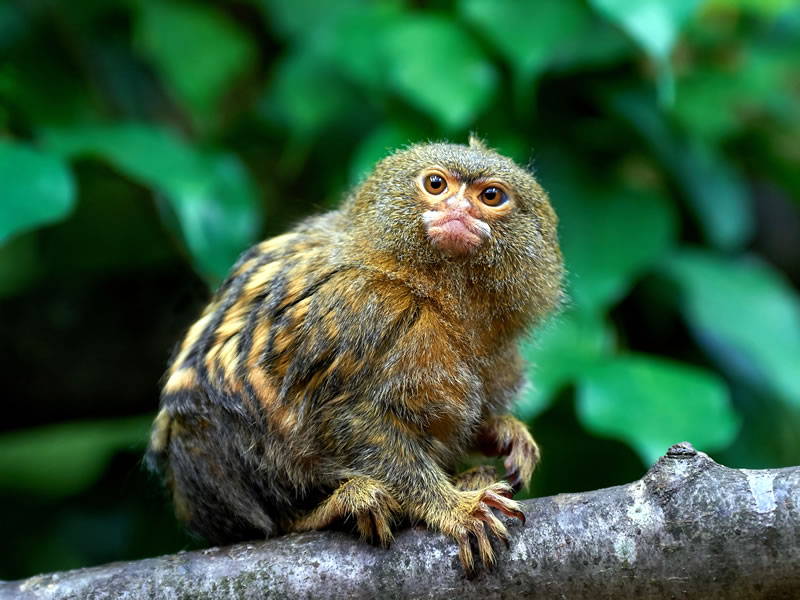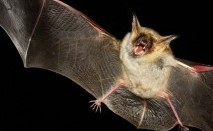
Category: Mammals

Pygmy marmosets (Cebuella pygmaea), also known as pocket monkeys or finger monkeys, are native to South America. They grow to a length of about 6” including their tails. The thought of having a tiny monkey as pet might be appealing, but all monkeys are demanding pets, and pocket monkeys, like many other larger monkeys, can grow to be aggressive or hard to control as they get older (and depending on where you live, they may also be illegal, as well). The average life span of the pocket monkey in the wild is 11-12 years; in captivity it can get closer to 20 years. In the wild, these little 3-5 oz. 6” monkeys spend most of their time in trees and can leap about 5 meters (over 16 feet) from tree to tree. They also can leap into the next room from the perch on your finger, or right out the window. To get an idea of what his means, if you are 5’ 9” tall and if you could leap like a pocket monkey, you could jump 2,300 feet. At a track meet, you’d jump out of the stadium!

The age-defying Brandt’s bat
In most mammals, larger size correlates with longer lifespan, but that is not the case with the Brandt’s bat, who can live up to 41 years and weigh less than 0.28 ounces! These bats resemble larger, longer-lived mammals in that they mature slowly and have fewer offspring – but the size difference is dramatic: a female Bonobo lives for approximately 40 years as well, but she outweighs the Brandt’s bat by a factor of 3,771! Oddly enough, it is suspected that the mutated gene that causes the bat’s dwarfish size is the same one that leads to its long lifespan. Studying animals with unusual longevity like the Brandt’s bat does more than just satisfy our curiosity, it could lead to longer, healthier lifespans for humans and other animals!
Learn more >>
 Discover Animals is a web-based educational resource offered by the NAIA
Discover Animals is a web-based educational resource offered by the NAIA